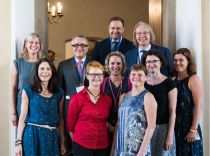
Stanislav Kmoch: Know-how made testing for Covid safer
For 30 years Professor Stanislav Kmoch has devoted himself to the research of rare diseases; during the coronavirus pandemic, his laboratory was able to apply significant know-how in the development of new diagnostic kits for the detection of Covid-19.
Pavla Hubálková, 10 September 2020

CU's GeneSpector introduces new kits to detect Covid-19
GeneSpector, a subsidiary company of Charles University making use of technology developed at the school, introduced new kits for more efficient, faster, and safer laboratory detection of Covid-19.
Forum Magazine, 9 September 2020
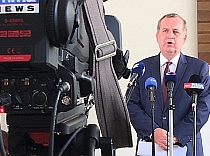
CU & private sector develop new test for Covid-19 and flu
Researchers from Charles University’s First Faculty of Medicine together with three private sector firms have developed a new test for flu and Covid-19 which should be available in September.
Jan Velinger, 17 August 2020

BIOCEV's Ruth Tachezy: Taking aim at the unexpected
f the novel coronavirus had never hit, Ruth Tachezy would have been doing other things: applying for funding, heading a national reference laboratory, and publishing. She would have been helping her students at the Faculty of Science and would have been preparing for an upcoming conference and a mountaineering vacation. Instead, she opted to tackle a higher “mountain”.
Marcela Uhlíková, 24 July 2020
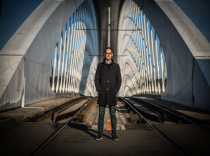
The secret of binary star V1309
Last year, three young researchers at Charles University won the Neuron Prize for promising scientists in the Czech Republic. One of them was astrophysicist Ondřej Pejcha, an expert on binary stars who studied at CU and at Princeton University.
Martin Rychlík, 23 July 2020
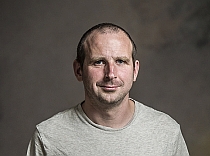
Mathematician Zdeněk Dvořák: Inspired by the real world
“Most of my work still takes place on paper,” says theoretical mathematician Zdeněk Dvořák from the Computer Science Institute of Charles University. He focuses on combinatorics, graph theory, and theoretical informatics, and he received the ERC CZ Consolidator Grant for his research.
Pavla Hubálková, 9 July 2020

Alessandro Testa: Researching the revival of religiosity
Italian scientist Alessandro Testa has already written three book-length monographs. The works, published in Italian, focus on the relationship between ancient myths and modern mythology, folk carnivals and the history of religiosity in the region he himself comes from.
Martin Rychlík, 10 June 2020
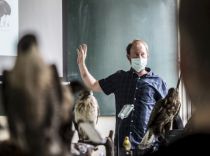
Scientist Radek Lučan on bats’ remarkable immunity
A number of deadly viruses are believed to have originated in bats, including Ebola and the original SARS. The indications are that the novel coronavirus SARS-Cov-2 also made the jump from bats, most likely through an intermediary species.
Jan Velinger, 4 June 2020
